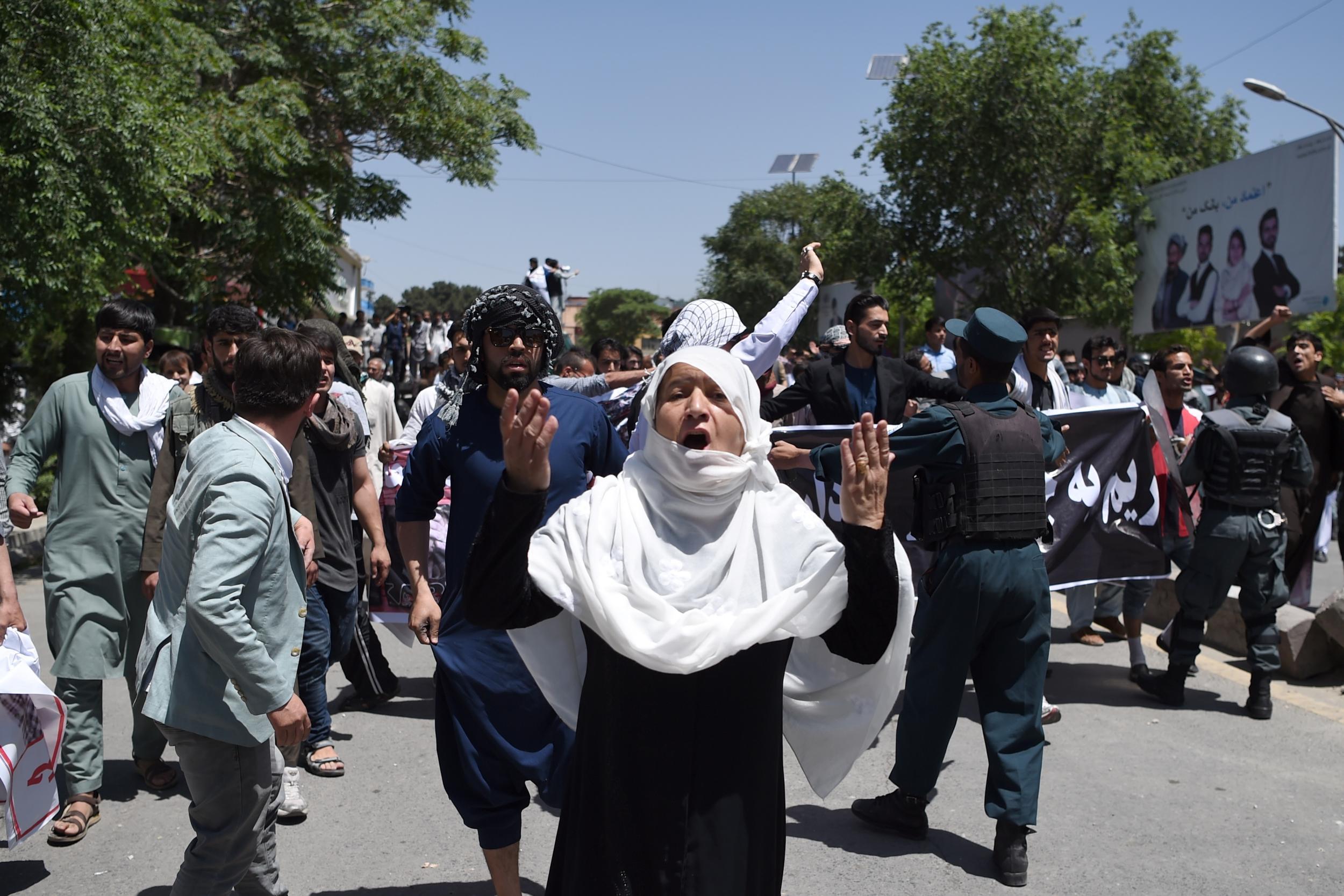Kabul explosion: Suicide bomber strikes outside Shia mosque in Afghan capital
The attack comes during the holy month of Ramadan

Two people have been killed and at least five injured in a terrorist attack on a Shia mosque in Kabul, the Afghan Interior Ministry reports.
Witnesses reported hearing a blast and gunfire at the al-Zahra mosque, located on the western outskirts of the city, on Thursday night.
Ministry spokesman Najib Danesh said on Twitter that one civilian and one policeman had been killed. Four other civilians and three policemen were also said to be injured.
Mr Danesh said the attacker was blocked by police upon trying to enter the mosque. After engaging the police in a gun battle, however, he took refuge in the kitchen and detonated his bomb.
Isis has taken responsibility for the blast, which Afghan officials deemed a suicide attack.
The attack came during the holy month of Ramadan, on a night when Afghani Muslims packed into mosques around the city for prayer. Senior officials were reportedly due to attend the evening's services at al-Zahra.
The blast follows a string of violent events in the city, including a suicide bombing that killed 90 and injured 400 last month. A separate suicide truck bombing on 3 June killed 150, making it the deadliest bombing since the US invaded in 2001. Neither Isis nor the Taliban have taken responsibility.
Kabul's Shia majority have been a frequent target of these attacks. An assault on a Shia mosque in November killed 30 people, and an explosion at a mostly Shia demonstration last July killed 80.
The mounting fatalities have made some wonder whether the US will be able to defeat burgeoning Isis and Taliban forces in the country.
The Taliban have seized control of several districts across the country in the last two years, and have refused to participate in peace negotiations until all foreign forces are removed.
A prominent Isis affiliate gained as many as 11,000 foreign fighters in that time period, Afghan President Ashraf Ghani reported.
President Donald Trump recently handed control of troop levels over to the Pentagon, after his defence secretary declared the US was "not winning" the war.
“The Taliban had a good year last year, and they’re trying to have a good one this year,” Defence Secretary James Mattis told the Senate Armed Services Committee. “Right now, I believe the enemy is surging.”
Many believe the delegation of authority to Mr Mattis will result in a troop increase in Afghanistan. The top US commander in the country previously claimed he needs “a few thousand” more troops to be successful.
Mr Mattis said on Wednesday that the change "does not in itself change the force levels for Afghanistan".
Join our commenting forum
Join thought-provoking conversations, follow other Independent readers and see their replies
Comments